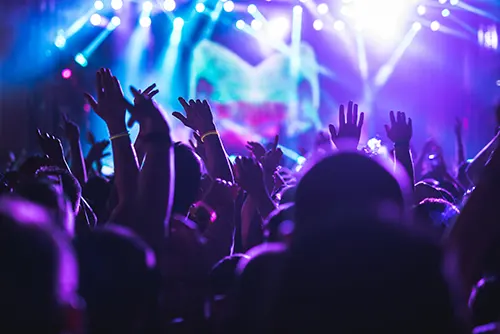
Did you know that there will someday be more AI assistants in the world than people, with 8.4 billion AI-powered assistants already in existence by the end of this year? In the live events industry, as well as in other industries, some people worry that AI will replace jobs. But the audio and video engineers on our team here at Showcall are excited about how AI will soon simply expedite their work by creating a solid baseline from which engineers and technicians can finetune.
AI can automatically name and index audio and video files, clean up background noise, increase resolution, enhance imagery, and even fix sound problems such as bleed, breath, and plosives. AI can even provide a rough mix as a springboard to work from.
Here are three areas in which AI will change the production experience at live events:
Creating Content
Scriptwriting and Storytelling: AI algorithms can assist in generating scripts, suggest narrative structures, and create engaging content based on audience preferences.
Show Production: At Showcall, we currently already employ AI for event voiceovers, thus eliminating the time necessary to identify a voice over artist and recording time. With this service we simply type in the VO’s, then choose our voice preference, and AI instantly creates flawless voiceovers. Most recently one of our team used the service to help his elementary school son write a “movie trailer” based on his book report. AI took the student’s write-up and created a dramatic movie trailer complete with epic music!
Enhancing Visuals: AI can upscale video resolution, remove noise, and even generate special effects, improving the overall visual quality of events.
Automated Editing: AI tools can analyze and edit video footage with minimal human intervention, speeding up the production process. For example, they can automatically trim clips, adjust lighting, and balance audio levels. This process can often be time consuming and costly, but now AI can turn around an event “highlights reel” in minutes vs. hours of expensive editing.
Real-time Transcription and Translation: AI-powered transcription services provide real-time subtitles, and translation tools can make events accessible to a global audience.
Virtual and Augmented Reality (VR and AR)
Bringing Environments and Products to Life: You’ll be able to virtually walk through a venue, “touch and feel” product demos, interact in enchanting environments, or view a live-stream with augmented elements.
More Realistic Experiences: Here’s an example of how AI can create an immersive experience: During a live sports event, AI can process live data feeds - like player movements, game statistics, and audience reactions - and create an AR or VR experience out of this. Guests at a completely different venue can then experience the event as if they were there, with dynamically updated information that reflects what’s happening on the ground.
Making VR and AR More Affordable: AI will dramatically speed up the process of creating VR and AR experiences, thus making it more within financial reach for almost any type of event.
Smart Stages
Lighting: AI can control stage lighting, sound, and effects in real-time, adapting to the mood and needs of the performance or presentation. This dynamic control results in more visually stunning experiences.
Audio: AI algorithms can reduce background noise, enhance speech clarity, adjust audio levels and balance based on audience feedback, and trouble-shoot frequencies and noise levels before they are noticed by the audience. While still in development, AI will expedite the work of an Audio Engineer at a live event in a substantial fashion.
Creative Collaboration: AI tools can create graphics, design visual elements, compose music, generate sound effects, all geared to fit the mood and theme of the event.
